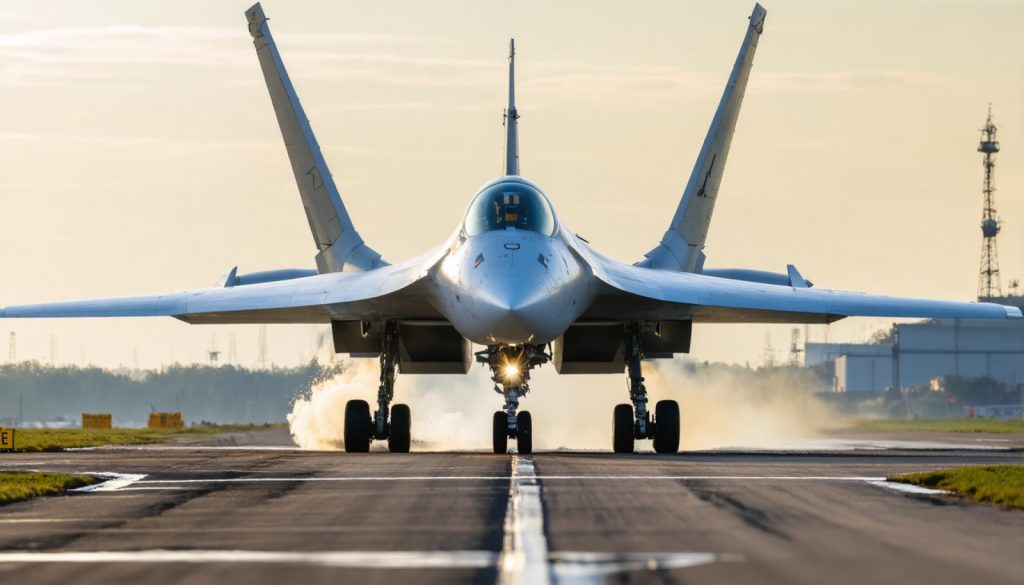
- The HR Smith Group, a renowned British aerospace manufacturer, is at the center of an international trade scandal.
- Accusations claim HR Smith supplied sensitive technology to Russia via an Indian intermediary, Hindustan Aeronautics Limited (HAL).
- HR Smith denies the allegations, stating their exports to India are for civilian use, aiding humanitarian missions.
- Controversy highlights the misuse of the Harmonized System code, suggesting it as inconclusive evidence of wrongdoing.
- The scandal reflects broader challenges in global trade, where compliance meets geopolitical interests and media scrutiny.
- HAL and sources close to them deny the allegations, stressing the need for accurate media reporting.
- This situation underscores the importance of transparency and integrity in international business practices.
In the swirling maelstrom of international trade and geopolitics, the HR Smith Group, a prominent British aerospace manufacturer, finds itself embroiled in controversy. A recent report implicates the company in a scandal with reverberations from London to New Delhi, yet the accused fervently reject these claims, maintaining their innocence with a resolute voice.
With its roots deeply embedded in serving the aerospace sector with cutting-edge technology, the HR Smith Group is renowned for its commitment to compliance and integrity. The storm brewed by allegations of supplying sensitive technology to a Russian entity through an Indian conduit—a narrative woven by a major American publication—has been met with staunch opposition from the company itself. They assert these allegations are entirely unfounded and defamatory.
Central to the furor is an intricate web linking HR Smith, Hindustan Aeronautics Limited (HAL), and Rosoboronexport, the latter being a key Russian arms agency currently blacklisted by several Western powers. The reports suggested that HR Smith’s products, including transmitters and cockpit devices valued at nearly $2 million, had found their way into Russian hands via HAL. Yet, HR Smith meticulously dismantles this accusation, stating that their exports to India are solely designed for civilian use—specifically, tools for a satellite-based search and rescue network crucial for international humanitarian missions.
A pivotal point of contention lies in the Harmonized System code, an international product classification tool purportedly used to draw connections between seemingly unrelated consignments. HR Smith warns that this code, a bland sequence of numbers shared by diverse products ranging from household items to advanced electronics, is inconclusive evidence of any wrongdoing—a detail lost in translation amid sensationalist claims.
This unfolding drama underscores a broader disquiet all too familiar in today’s global trade landscape—a cautionary tale about the complexities of international commerce where stringent compliance with export controls often collides with geopolitical agendas and media scrutiny. As the HR Smith Group fiercely defends its reputation, a narrative emerges that highlights the broader implications for how such allegations—whether proven or discredited—can echo through boardrooms and foreign ministries alike.
HAL remains reticent amid the tempest, leaving observers in anticipation of further clarity, though sources close to the Indian aerospace stalwart reject the report as “factually incorrect.” They urge media entities to rigorously vet their stories to prevent the distortion of delicate truths framed to suit specific narratives.
In a world where corporate destinies are increasingly interwoven with global politics, this tale reminds us that vigilance, transparency, and a steadfast moral compass are paramount in navigating the turbulent seas of international relations.
Shocking Twist in Global Trade: The HR Smith Group Controversy Unveiled
The recent controversy involving the HR Smith Group, a well-regarded British aerospace manufacturer, has thrust international trade and geopolitical tensions into the spotlight. Allegations claim that the company supplied sensitive technology via India to Russia, a claim HR Smith emphatically denies. This complex narrative not only challenges the company’s commitment to compliance but also highlights the intricacies of global trade where regulations, ethics, and perceptions play critical roles.
Key Facts and Insights
Compliance and Technology in Aerospace
1. HR Smith’s Track Record: The company is known for its adherence to stringent international standards and export controls. They produce products primarily used for civilian applications, such as satellite-based search and rescue networks.
2. Harmonized System Code: This international classification tool, used to categorize goods in trade, has been implicated in misrepresenting the nature of HR Smith’s exports. Experts warn against using these codes erroneously to draw premature conclusions without solid evidence.
3. The Crux of the Scandal: Allegations center on HR Smith allegedly supplying cockpit devices and transmitters to Russia, prohibited due to ongoing geopolitical tensions and sanctions. HR Smith contests these claims, emphasizing their products’ humanitarian purposes.
Real-World Implications
Trade Compliance
– Geopolitical Risks: Companies involved in international trade must rigorously ensure their compliance with various countries’ laws to prevent accusations similar to those faced by HR Smith.
– Transparency and Documentation: It is crucial for businesses to maintain comprehensive records and transparent communication strategies to defend their operations if scrutinized.
Industry Trends
– Technological Safeguards: More firms are investing in sophisticated tracking and marking technologies to ensure their products are not misused or misrepresented in international markets.
– Global Monitoring: Governments worldwide are intensifying their scrutiny over technology transfers due to rising geopolitical tensions, affecting companies trading dual-use goods.
Pressing Questions
How can companies ensure compliance with international laws?
To stay compliant, companies should:
– Employ dedicated compliance teams knowledgeable about international regulations.
– Utilize third-party audits to assess adherence to export control laws.
– Establish thorough internal protocols for reviewing product end-users and destinations.
What effects do these allegations have on international business practices?
Allegations like those against HR Smith have far-reaching implications, often prompting:
– More cautious trade practices.
– Heightened due diligence for partnerships.
– Possible reputational damage, even if the claims prove unfounded.
Recommendations and Tips
– Stay Informed: Businesses must stay informed about geopolitical developments and adapt their strategies accordingly to mitigate risks.
– Engage Legal Counsel: Continuously engage with international trade lawyers to navigate the complex landscape of export controls and international compliance.
– Crisis Management Plans: Develop comprehensive crisis management strategies to address potential accusations and maintain stakeholder trust.
Conclusion
The story of HR Smith is a potent reminder of the tangled web weaving international trade and politics. To effectively navigate this environment, firms must prioritize stringent compliance measures, transparency, and a proactive stance towards regulatory shifts in global markets.
For more insights into international trade and compliance strategies, visit the official [HR Smith Group](https://www.hr-smith.com) and [Hindustan Aeronautics Limited](https://hal-india.co.in) websites.



